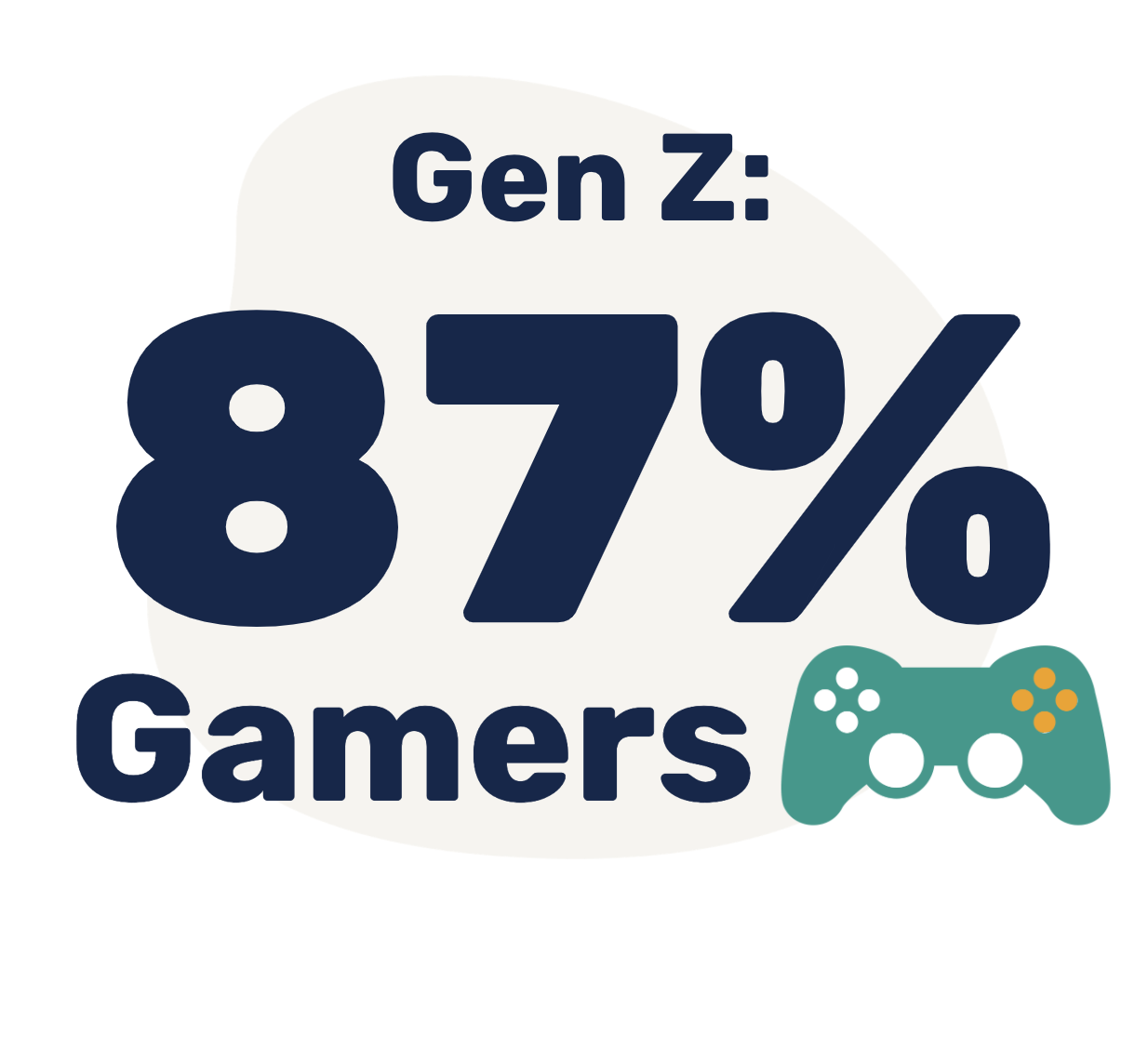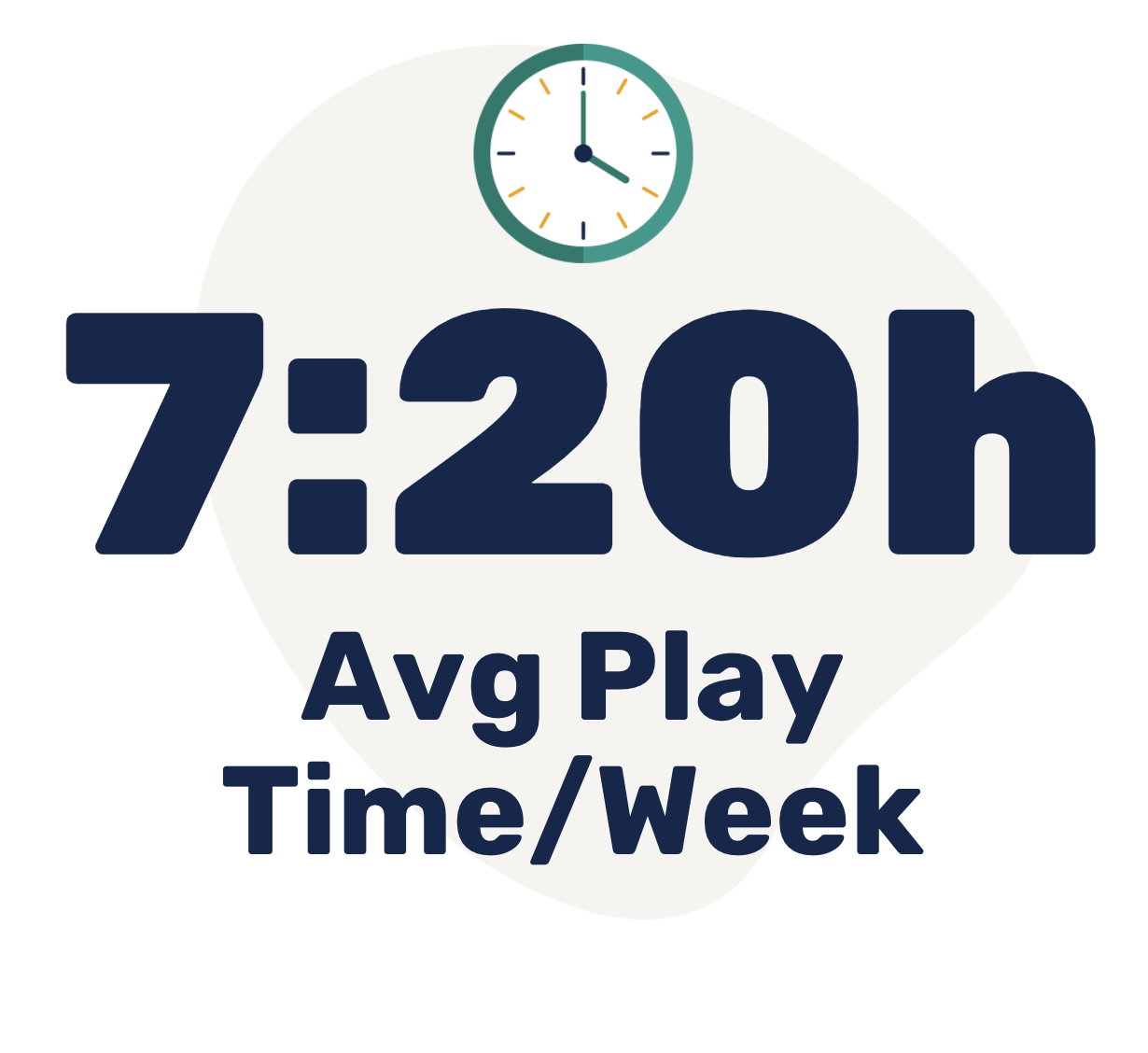
Gen Z is Taking Over the Metaverse
What Your Brand Needs to Know
Although the term “Metaverse” has existed since 1992 with Neal Stephenson’s fiction novel, Snow Crash, the expansion of the Gen Z Metaverse has caught the eyes of brands and businesses across the globe nearly thirty years later. As technology progresses at a rapid rate, especially those technologies that deal with virtual and augmented reality, Gen Z research shows that involvement within the larger Metaverse is vital for marketing towards Gen Z demographics. In order to understand how important this developing stage of the internet is, having a solid grasp of what the Metaverse is and how it can be harnessed is paramount.
The Metaverse As it Exists
The Metaverse, as it is understood, can be described as an online space developed through augmented and virtual reality that exists outside the standard parameters and expectations of a video game. In a larger sense, it is a product that comes as a result of Gen Z trends within the separate games that branch together to form the wider online space.
More and more, in games such as Roblox, Minecraft, and Fortnite, Gen Z players are turning their focus away from the act of playing the game itself and more towards the social and community aspects that these games provide. Instead of being spaces that emphasize only the competitive nature of these games, they become spaces in which Gen Z socializes and spends time with friends, follows news trends, and consumes news and event media through apps, websites, and podcasts. For this generation, the augmented reality space becomes more about the live experience of these worlds and how they interact, which includes playing, viewing, and socializing in equal degrees.
Intersection of the Metaverse and Gen Z
More so than any generation that came before them, Gen Z is uniquely familiar and comfortable in spaces that have the potential to exist within the Metaverse.


- Gen Z research shows that, while Millenials’ number one pastime is watching TV or movies, the same activity ranks as fifth most popular with Gen Z.
- That same research illustrates that 87% of Gen Z plays video games on smartphones, gaming consoles, and computers weekly if not daily.
- Those same spaces and games, such as Fortnite and Minecraft, are ones that Gen Z has known and been involved with throughout their childhood and as they grew.
- According to research conducted by the Center for Generation Kinetics, this generation recognizes very little distinction between online and physical worlds.
- Additionally this generation, when asked which quality was most important to their generation as a whole, ranked tech-savviness almost as highly as freedom (19% and 22% respectively).
Because of these current Gen Z trends, the question becomes less about if the Metaverse launches into something significant and more about how to succeed within it when it does.
The Importance of Catering to Gen Z in the Metaverse
When it comes to how the Metaverse will evolve as well as which businesses and companies fail and succeed within it, Gen Z are the trendsetters. This generation is the best example of how new users and operators will adapt to the Metaverse-creating technologies as they develop.
Gen Z may also prove incredibly influential in convincing other demographics and less tech-savvy generations to test the Metaverse for themselves. They become, then, the primary enabler for the success and development of an interdependent Metaverse structure in which multiple online and augmented reality spaces can interact. Gen Z insights are vital to the businesses and companies who wish to succeed within this expanding space as their influence shapes that very space as it expands.
One example of such a trend is with Fortnite’s Rift Tour, which featured a fifteen minute concert headlined by pop artist Ariana Grande. At its peak, the concert pulled over one million viewers, an attendance that comes in at over four times larger than the spectator capacity of the largest stadium in the world, the Great Strahov Stadium in Prague. The Metaverse was established and continues to function at a global scale, with no limit to persons present and is therefore, at its core, social and multicultural.
The Future of the Metaverse
As the technologies that enable the metaverse evolve, the field will be largely developed in response to the trends and behaviors that Gen Z exhibits within it. While a true Metaverse requires the ability to transfer avatars and resources (such as NFTs, or non fungible tokens) without cost to the player, the groundwork is already being established. From Ariana’s virtual performance to business behemoths such as Nvidia, Facebook, and Disney, building caches of geographical data can be used to create realistic and fantasy-style augmented reality worlds.
The Gen Z Metaverse represents the next stage of evolution for the internet, a new and unique dimension within that expansive space, and it is vital that brands and businesses consider their future and current roles within that structure and in relation to Gen Z.
Need to delve deeper into the needs and wants of Gen Z for your business or organization? Knit provides both qualitative and quantitative insights — invaluable data on about 40% of the world’s consumer population — for each client’s particular needs. Questions? Head over to our Contact Page, and tell us more about what you’re interested in learning.

Subscribe for industry insights delivered weekly.
Get all the Knit News you need with access to our free newsletter to stay a step ahead on the latest trends driving the industries of tomorrow.

